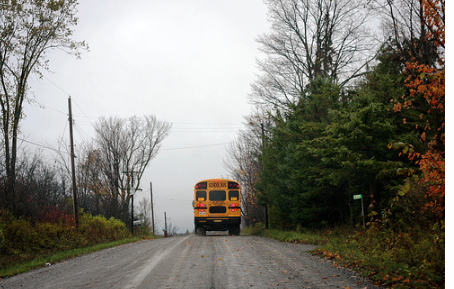The Art of Teaching Science: Schools Stuck at Back of the Class According to Forthcoming PISA International Test Results
According to today’s lead newspaper story, the results to be released by the Organization for Economic Co-operation and Development (OECD), show the country has simply “stagnated” since its lackluster performance four years ago. The OECD results will be announced on Tuesday.
According to OECD 2009 test data, average score for the country’s fifteen year olds fell in maths, reading and science. Scores are expected to fall further when the 2013 results are available on Tuesday.
According to one senior education official, the latest PISA results are a “wake up call” for school policy. Because China, Shanghai, and Korea did so much better, politicians suggest that education policy officials go to China to find out how they do it.
 And of course, the solution to poor performance on these international tests is to root out “bad teachers.” In fact, one inspector of schools and newspaper columnist said that the problem with our schools is that there are thousands of “bad teachers.” He suggested that the way to root them out is to raise the standards, and then pay teachers on the basis of their student’s test scores.
And of course, the solution to poor performance on these international tests is to root out “bad teachers.” In fact, one inspector of schools and newspaper columnist said that the problem with our schools is that there are thousands of “bad teachers.” He suggested that the way to root them out is to raise the standards, and then pay teachers on the basis of their student’s test scores.
Now your probably thinking that this is a newspaper story in an American newspaper, but you would be wrong.
I am in Britain
I am in England for three weeks, and the lead story in today’s Sunday Times (London) is UK schools stuck at back of the class.
The last time the PISA results were released (2010) you would have thought the sky was falling if you listened to our Secretary of Education, Arne Duncan. PISA is an international assessment that is administered to 15 year-old students in participating countries. The PISA assessment has been administered in 2000, 2003, 2006 and 2009.
The 2009 test results were released in December 2010. In 2009, 65 countries participated in the test. In general average scores are used to make comparisons among countries. The U.S. average was 502 (OECD average was 501). According to the 2009 report, among the other 64 countries and education systems, 18 had higher average scores, 33 had lower average scores, and 13 had average scores that were not measurably different from the U.S. average score.
Sputnik Moments
If we rank order the countries according to average test score, the U.S. is in 19th place, and using the sports analogy, we are not at the top, and that that’s what causes politicians, corporate leaders, and state departments to make dire assessments of the quality of American education. The leaders of the U.S. government actually said that these test results (coming in 19th) was a “sputnik momement.”
Now we have another potential “Sputnik moment,” and it’s not happening only in the U.S. Newspaper headlines throughout most Western nations will put their schools at the back of the class.
Sputnik moment or not, this is the predicted reaction of “leaders” when ever international (or national) test results are released. In fact, the headlines of many nations’ national newspapers often are headlined with claims that the “sky is falling” and that the educational system is a failure. Politicians, corporate heads, and others rush to make judgements, and lead their nations down paths that are harmful to the educational systems they claim is failing.
One problem here is the over reliance on test scores to make judgements about systems of education that in some cases are huge (the U.S. has 15,000 different school districts), very small (Singapore is City-State, perhaps comparable to one U.S. district), distinctly different about how many students live in poverty, differences in the way schools are funded, teachers prepared, and curriculum developed and implemented.
What is your predication about the response of newspapers and education officials when the PISA results are released on Tuesday?
This blog post has been shared by permission from the author.
Readers wishing to comment on the content are encouraged to do so via the link to the original post.
Find the original post here:
The views expressed by the blogger are not necessarily those of NEPC.
